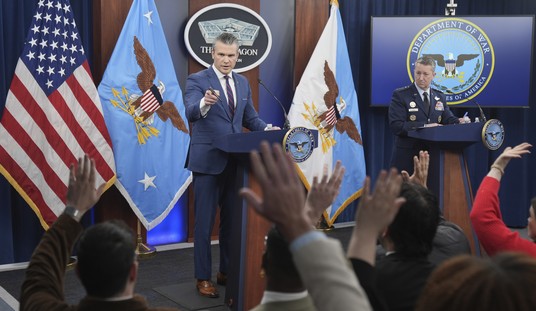
The newspaper featured battles with the studio attempting damage control ahead of this weekend’s release.
The real-life dramatization of the Atlanta Olympic bombing and the central figure in that investigation — security guard Richard Jewell — is being strategically released this weekend, primed for the upcoming motion picture awards season. Yesterday actress Kathy Bates was granted a nomination for her supporting role, and it is awaiting further recognition in the coming weeks.
The Clint Eastwood-directed drama has been warmly received by critics — standing with a very strong 87% Positive on Rotten tomatoes — even as many are pained at the depiction of the press in the film. Michael O’Sullivan in the Washington Post calls it, ”A story about the frightening possibility of false accusation…But coming as it does in 2019, its vilification of reporters and the feds is even scarier.’’ In Slant, Chuck Bowen stated, ‘’Even with Eastwood so explicitly grinding an ax, Richard Jewell has the visceral power of his other recent political fables.’’ Many more of these grudgingly praiseworthy reviews are found, a testament to how good the film appears to be.
One outlet, however, has not been kind at all, and it is an understandably miffed Atlanta Journal-Constitution (AJC). The paper, and its reporter Kathy Scruggs, are prominent characters in the film, one in which the press is shown to be a reckless and damaging entity. The AJC has taken exception with both the way Scruggs is depicted, and how the paper is blamed for the false narrative that the titular character was a prime suspect for a time, and labeled a ‘’terrorist’’.
Lawyers have been retained by the paper and they have issued demands on the film and the studio, Warner Brothers Pictures. Citing that the studio is “engaging in constitutional malice”, and demand that the studio issue an onscreen disclaimer about the narrative license taken, in their estimation. This is being done with some basic ignorance in regards to this title, and to Hollywood films in general.
The practice of taking dramatic liberties with fact-based stories in film is hardly new. Studios have been engaging in this only since forever. In addition, ‘Richard Jewell’ already sports one such disclaimer ahead of the end credits, which would indicate that the newspaper is acting out here in bad faith having not seen the movie, or posturing to get its version of the narrative in the press. Consider the irony; regarding a film that shows the AJC rushing to judgment on Richard Jewell the paper also appears to be rushing to judgment on the movie itself.
Either the case, Warners is not the least bit impressed with the legal document. The studio put out a statement in response, essentially declaring it is standing behind its film and the sources used to make the script.
“There is no disputing that Richard Jewell was an innocent man whose reputation and life were shredded by a miscarriage of justice,” the statement read. “It is unfortunate and the ultimate irony that the Atlanta Journal Constitution, having been a part of the rush to judgment of Richard Jewell, is now trying to malign our filmmakers and cast. ‘Richard Jewell’ focuses on the real victim, seeks to tell his story, confirm his innocence and restore his name. The AJC’s claims are baseless and we will vigorously defend against them.”
The paper also takes exception with the way that its former reporter Scruggs is shown in the film. Of particular offense they cite the passages that shows Scruggs to be having sex with a contact within the FBI, a possible indication that this was how she became tipped off to the story that consumed her career, and possibly her own life. In the letter about this depiction the AJC contends, ‘’That is entirely false and malicious, and it is extremely defamatory and damaging.’’
Curious outrage, that — considering what the paper had to say about Jewell when it was consumed with covering his ‘’involvement’’. The AJC had described Jewell as a frustrated would-be police officer, who had taken on a security guard job to fulfill a fantasy. These are some of the descriptions that Scruggs herself used to describe Richard Jewell —
- ”Fits the profile of a lone bomber’’
- ”A frustrated white man’’
- ”Military, or police wanna-be’’
- ”Seeks to become a hero’’
This assessment of Jewell was made without professional citations. The paper was filling in the character blanks. Then it went down an even darker route, with a couple of references comparing Richard Jewell to the Atlanta Serial killer, Wayne Williams. Again, this was done without a scintilla of hard evidence, and yet today the AJC wants to claim innocence and it is positioning itself as an unfairly smeared media outlet.
By the looks of things very little has changed over the course of the past couple of decades, at least as far as journalistic malpractice. The main differences is now we have so many other outlets for information that we can see and then cite when the press behaves in this fashion. Oh, one other thing is different today — the same press will cry that it is unfair when it is held to the very standards they used to wield upon others.
With its depiction of organizational misdeeds within the FBI and the malpractice committed in the press ‘’Richard Jewell’’ appears to be a remarkably relevant motion picture for our country today.













Join the conversation as a VIP Member